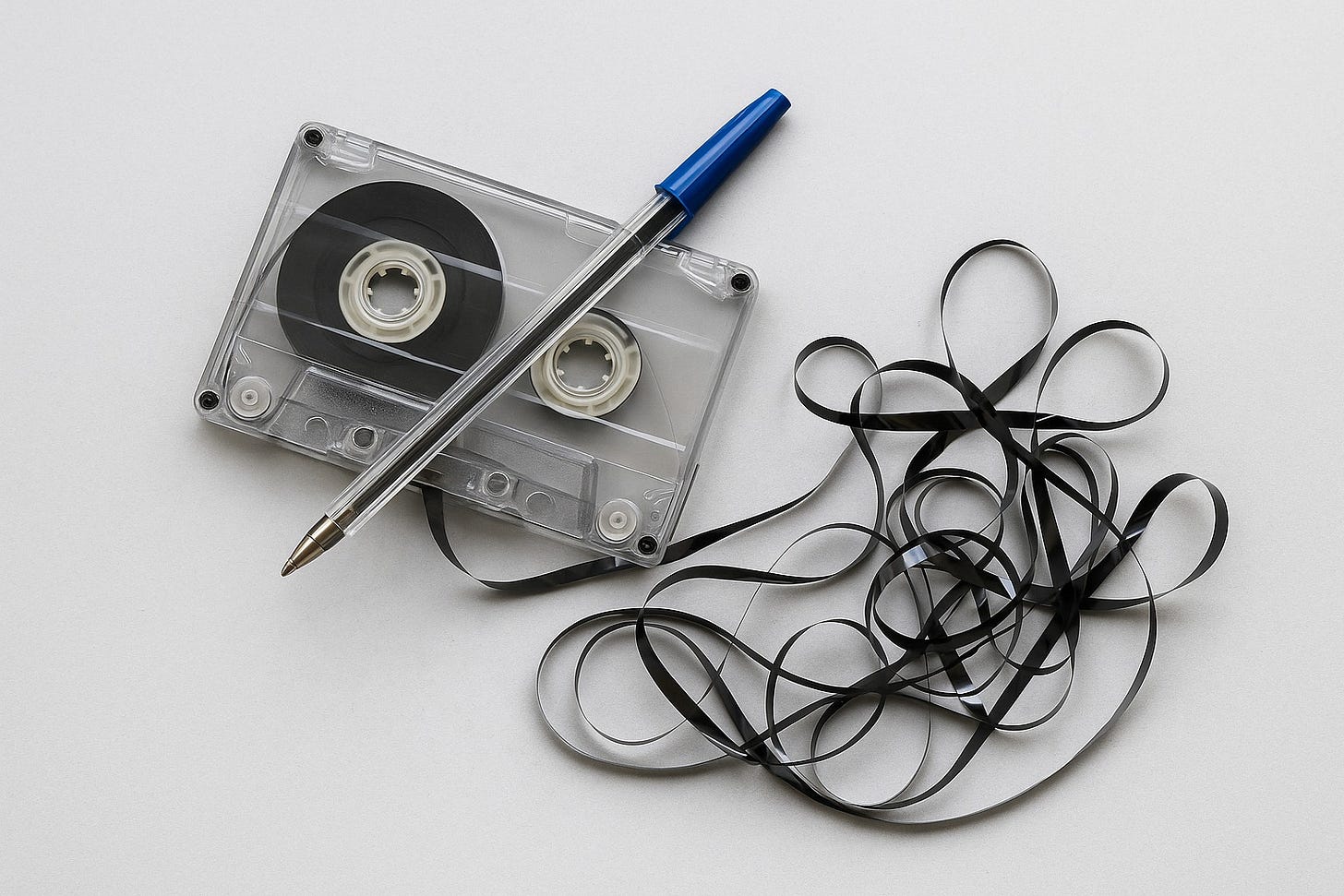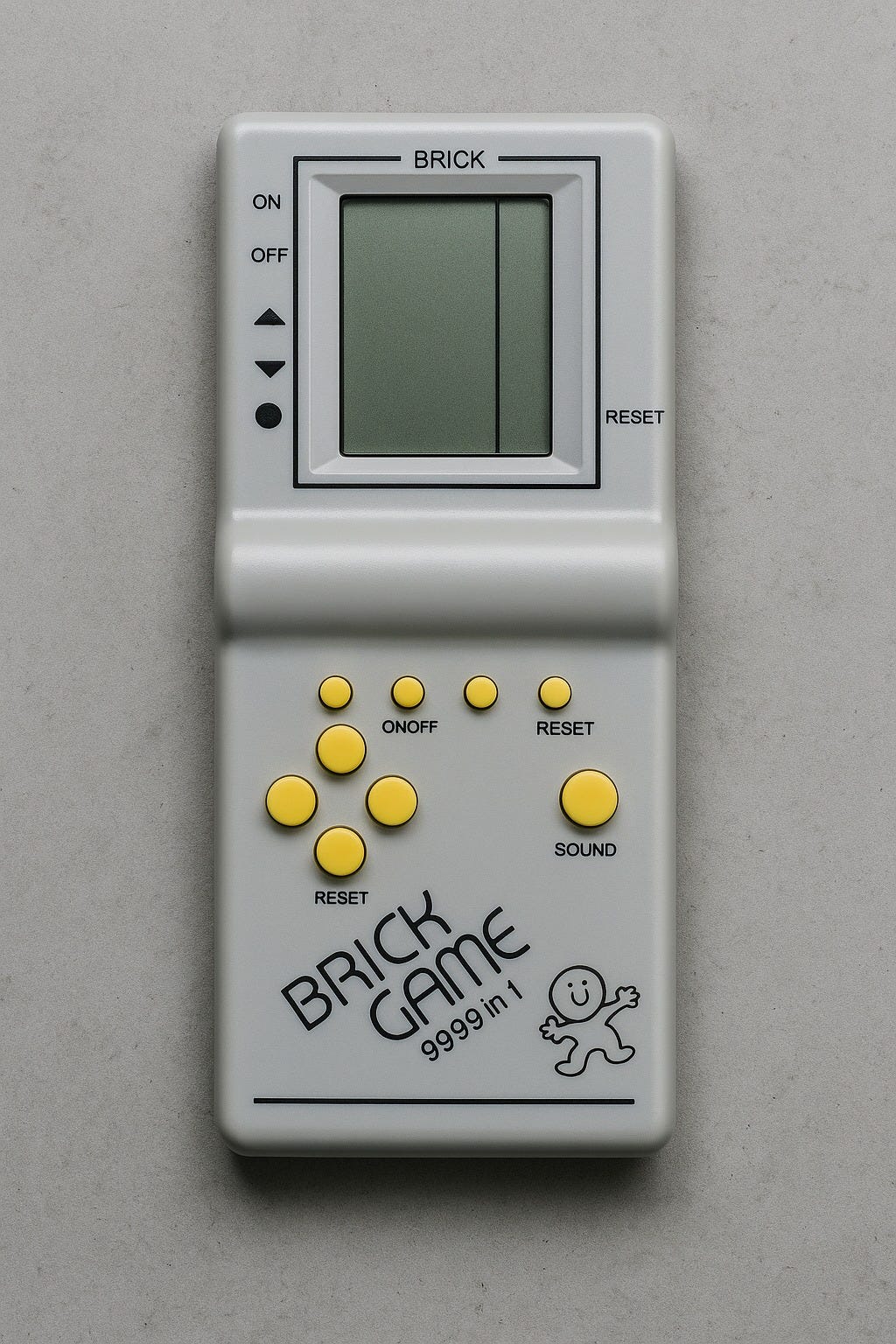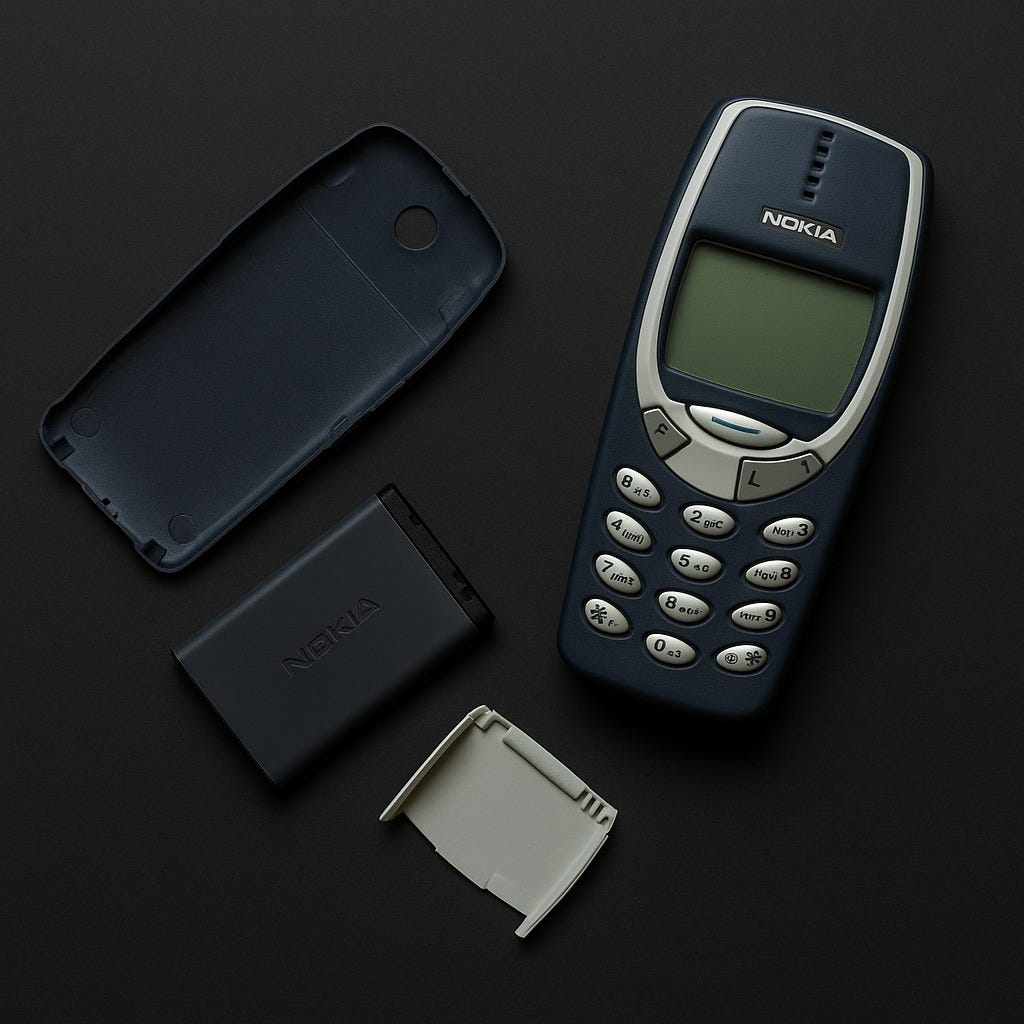Some of my best memories are blurry.
Not because time faded them, but because they were never captured.
We didn’t have phones in our pockets.
No filters. No reels.
Only raw, beautiful life, lived fully, then stored in memory.
Forever fleeting. Forever real.
Today, I’m sharing some of these memories because if I decide to write them all, I won’t finish.
And every single one carries the scent of sun-drenched afternoons, the sound of laughter without Wi-Fi, and the quiet magic of a childhood that raised warriors, not watchers.
We didn’t grow up rich, but we grew up rich in moments.
We didn’t ask for much, just that the power stayed on long enough to watch Tom and Jerry, The Adventures of Tintin and his dog Snowy. Sometimes Scooby-Doo. We wished that our friend’s mum would let us stay five more minutes.
We were raised on borrowed radios, dented lunchboxes, and shared dreams.
And somehow, we were okay.
In fact… we were more than okay.
We were happy.
Not Instagram-happy. Not aesthetic-happy.
But deep, aching, belly-laugh kind of happy.
And yeah, we had gadgets.
Not sleek. Not shiny. But ours.
𝐀 𝐩𝐞𝐧. 𝐀 𝐜𝐚𝐬𝐬𝐞𝐭𝐭𝐞.
That’s what ruled our world.
Not AirPods. Not Spotify. Just that black rectangle with its guts of brown ribbon, and a Bic pen that doubled as both a rewinder and a symbol of our genius.
When the cassette’s tape got chewed up inside the radio like a goat caught in barbed wire, we didn’t cry. We performed surgery on it. No gloves. No YouTube tutorials. Just instinct, spit, and patience. With glue. With tape. With patience.
And with that Bic pen, the surgeon’s tool of our generation.
We’d insert it in the hole and spin, click, click, click, like DJing for ghosts.
Today’s Gen Z skips a song with a swipe. We used to wait for hours by the radio with fingers ready to hit ‘record’ when our favourite track came on. Miss it? That was pain. That was character development.
Now? They’ve got algorithms feeding them music based on mood: “chill,” “vibe,” “overthinking.” Back then, our playlist was Side A and Side B. That’s it. No shuffle. You listened to whatever was next, like life.
We nowadays wear noise-cancelling headphones. But we don’t forget that we had shared earphones with wires that tangled like family drama. And when one ear stopped working? You bent the wire, found the sweet spot, and held it with your thumb, as if defusing a bomb, just to hear 2Pac properly.
When Gen Z streams Drake, we had to wait three weeks for a cousin from town to visit with a new mixtape. The tape would be passed around like contraband, every friend copying it, sound quality dying slowly like a phone at 1%.
But we didn’t complain.
Because we knew how to fix things. With glue. With tape. And that stubborn faith that if we spun that Bic long enough, the music would play again.
We were engineers without degrees.
Now they scroll. We solved.
And somehow, that made the music sweeter.
We didn’t know what mental health was.
But we knew the healing power of a bike ride at sunset, or a friend showing up with no reason other than you looked sad.
We didn’t say, “I’m not okay.”
But somehow, someone always noticed.
We played real games.
Outside.
We played with the wind, flirted with gravity, and risked our lives like it was a sport.
We turned old nylon bags into parachutes, climbed mango trees like we had no parents, then launched ourselves into the air like discount stuntmen. It wasn’t skydiving. It was die-trying.
We'd land hard. Sometimes on the ground, sometimes on each other, with a sound only bones make when they’ve had enough.
Then came the white plasters. Thick. Ugly. Glorious. Our casts became canvases, everyone signed them, drew cartoons on them, and wrote inside jokes only we understood.
We walked like broken heroes, dragging our limbs like battle scars.
And the best part? Nobody called an ambulance. Parents just sighed, slapped us with ointment, then asked why we didn’t break our heads too while we were at it.
Pain was just part of the game. We didn’t fear injuries. We wore them. Like a badge of honour.
Like medals. Like memories. Like proof that we truly lived.
Millennials are special because during our time, these white plaster casts were all over. Kids nowadays are too busy with PlayStation 5 to break a bone in the first place.
We swam in the Indian Ocean like it belonged to us.
Because Mombasa belonged to us. Slid through waves with reckless joy.
Salt clung to our skin. And that was the problem.
Because fun had consequences.
Our mums were human lie detectors, trained by war, sharpened by survival, powered by suspicion.
Mom would look at me with squinted eyes and say,
“Lift your shirt.”
Then she’d lick my stomach.
Not the arm. Not the face.
The stomach.
The places she knew I might’ve forgotten to scrub properly during ablution at the mosque after swimming.
If she tasted sea salt, it was game over.
Justice was swift. And personal.
Our mums didn’t shout empty threats.
They delivered.
With whatever weapon the spirit led them to. A wooden cooking stick. A white Somali sandal with a light green Y-shaped toe strap. Dacaas Shiinees, they call it in Somalia.
Sometimes, the back of a belt. Or that electric cable used to power the family radio, the one with exposed copper wires that hummed when it touched skin.
Discipline wasn’t scheduled. It was swift. Divine.
You could be brushing your teeth, and boom, a slap from behind for what you did yesterday. Or what you were about to do tomorrow. Sometimes, she’d swing so hard that the belt would land on your shin instead of your behind, and now there’s a wound. A proper one. Deep. Like The Rift Valley.
So she’d take you to the hospital. This was true love. They hurt and heal at the same time.
And on the way back, her voice softens. “I didn’t mean to hurt you.” And that’s the apology. Then at home, she gives you an extra glass of milk. That was her love language. Milk.
Not because you asked. Not because you needed calcium.
But because back then, we drank milk. We digested it. No bloating. No intolerance. We were built tough. Lactose intolerance? That’s a Gen Z problem. Ours was mother's intolerance. And there was no remedy for that.
It's
So we adapted. From our swimming escapades, we washed off at the mosque's ablution block. Walked home like saints.
Still got beaten.
Why? Too clean. It was illegal to be too clean. It’s suspect.
Next time? New tactic.
Swim. Rinse. Roll in dust.
Looks like you just tripped on your way from school.
It worked. Once.
Then got beaten for turning laundry day into a battlefield.
Because washing machines were fairy tales.
And our mothers?
They were Samsung, before Samsung.
The breathing version of a washing machine back then, pre-soak, scrub, rinse, spin, and scold included.
Beaten for being clean. Beaten for being dirty. Beaten for both.
And yet…
We laughed louder than the pain.
Because we knew something that can’t be taught today:
That joy was worth the bruises.
This had flavour.
Nostalgic. Raw. Hilarious.
It’s the kind of childhood that made survivors, not snowflakes.
We weren’t Mashmallow on a stick kind of kids. We were organic.
Simple things made us whole.
We didn’t need much. Just a stick, a stone, and space in the sand.
We’d draw crooked rectangles with our fingers, number them like they meant something, then take turns hopping on one leg, trying to kick that stone from one square to the next without falling. It was serious business. The Olympics of the barefooted.
In English, they call it Hopscotch.
In Somali, it’s called Shaxda Dhagaxa.
But where I grew up, it was Kati Kati. Or sometimes Kuruka. Depends on the mood. Depends on who was shouting the rules louder.
No screens. No apps. Just the sound of laughter, arguments over whose turn it was, and the quiet satisfaction of finishing all the boxes without touching a line.
That was winning. That was joy.
And we didn’t even know we were building balance, both in our feet and in life.
(𝑻𝒉𝒊𝒔 𝒘𝒉𝒐𝒍𝒆 𝒔𝒕𝒐𝒓𝒚 𝒘𝒂𝒔 𝙞𝒏𝙨𝒑𝙞𝒓𝙚𝒅 𝒃𝒚 𝒂 𝒗𝒊𝒅𝒆𝒐 𝒓𝒆𝒆𝒍 𝑰 𝒔𝒂𝒘 𝒐𝒏 Dylan Thiry 𝑰𝒏𝒔𝒕𝒂𝒈𝒓𝒂𝒎 𝑷𝒐𝒔𝒕. 𝑨 𝒈𝒓𝒐𝒘𝒏 𝒎𝒂𝒏, 𝒉𝒐𝒑𝒑𝒊𝒏𝒈 𝒂𝒓𝒐𝒖𝒏𝒅 𝒍𝒊𝒌𝒆 𝒂 𝒊 𝒘𝒂𝒔 𝒄𝒉𝒊𝒍𝒅, 𝒑𝒍𝒂𝒚𝒊𝒏𝒈 𝒕𝒉𝒊𝒔 𝒗𝒆𝒓𝒚 𝒈𝒂𝒎𝒆. 𝑺𝒐𝒎𝒆𝒕𝒉𝒊𝒏𝒈 𝒂𝒃𝒐𝒖𝒕 𝒊𝒕 𝒍𝒊𝒕 𝒂 𝒇𝒊𝒓𝒆 𝒊𝒏 𝒎𝒆. 𝑰 𝒔𝒂𝒕 𝒅𝒐𝒘𝒏 𝒂𝒏𝒅 𝒘𝒓𝒐𝒕𝒆 𝒕𝒉𝒊𝒔 𝒗𝒆𝒓𝒚 𝒔𝒂𝒎𝒆 𝒔𝒕𝒐𝒓𝒚 𝒚𝒐𝒖 𝒂𝒓𝒆 𝒓𝒆𝒂𝒅𝒊𝒏𝒈 𝒏𝒐𝒘. 𝑭𝒐𝒓 𝒉𝒐𝒖𝒓𝒔. 𝑰 𝒉𝒂𝒗𝒆 𝒔𝒉𝒂𝒓𝒆𝒅 𝒕𝒉𝒆 𝑳𝒊𝒏𝒌 𝒕𝒐 𝒕𝒉𝒂𝒕 𝑰𝒏𝒔𝒕𝒂𝒈𝒓𝒂𝒎 𝒓𝒆𝒆𝒍 𝒊𝒏 𝒕𝒉𝒆 𝒇𝒊𝒓𝒔𝒕 𝒄𝒐𝒎𝒎𝒆𝒏𝒕. 𝙒𝒉𝙚𝒏 𝒅𝙤𝒏𝙚 𝙧𝒆𝙖𝒅𝙞𝒏𝙜 𝙩𝒉𝙞𝒔...𝒈𝙤 𝙬𝒂𝙩𝒄𝙝 𝙞𝒕...𝙞 𝙥𝒓𝙤𝒎𝙞𝒔𝙚 𝙞𝒕𝙨 𝙬𝒐𝙧𝒕𝙝 𝙞𝒕)
And we laughed like kids… because we were kids.
No luxury. No screens. Just scraped knees and bad ideas.
That childhood trained us.
Not in violence, but in resilience.
Not in fear, but in strategy.
Not in silence, but in observation.
We learned when to lie. When to duck. When to disappear.
And when to stand tall, even if your knees were bruised like they always did. Or shaking for fear of being judged.
So when life throws us lemons, we don’t just make lemonade.
We blend it with ice, add mango, and charge rent for the recipe.
We learned business before school taught us math.
I ran a brick game rental at 9, maybe.
Ten minutes. Few coins.
Bought a second unit. Then a third. Then, before I knew it, I had five.
I learned profit margins before I even knew what “profit” Is.
Used lunch money to buy assets.
Because even then, we knew. Lunch was a liability.
A brick game was an investment.
𝐍𝐢𝐧𝐭𝐞𝐧𝐝𝐨 𝐒𝐭𝐲𝐥𝐞 𝐁𝐫𝐢𝐜𝐤 𝐆𝐚𝐦𝐞.
Back then, entertainment didn’t stream; it beeped.
Loudly. In mono. From a small plastic rectangle, we called the brick game.
No Wi-Fi. No touchscreen. No updates.
Just buttons you had to mash like your life depended on it, and a screen that looked like your school calculator had joined hands to give birth to this gadget.
You didn’t need a subscription. Just two AA batteries, and maybe a prayer.
When they started dying mid-game, the panic was real. The screen would fade like a ghost giving up on you.
So we’d pull out the batteries, rub them between our hands like we were warming them because they had developed cold feet.
Slot them back in like we were rebooting the universe.
If that didn’t work?
We bit them. Gently. Like coaxing a wild animal to behave.
And here’s the thing, it worked. Every. Damn. Time.
Even the batteries respected our teeth and lit the gadget back up, maybe just to avoid another future bite. Survival was mutual.
At school, break time wasn’t for snacks. It was for battle.
One kid held the brick game like a weapon.
The rest crowded over shoulders, yelling tactics.
“Rotate right! DROP! Noooo, you messed it up!”
The tension was Olympic. Reaching level 9 on Classic Mode 1?
You didn’t just earn bragging rights, you earned respect.
We weren’t wasting time. We were building childhood empires.
Netflix asks, “Are you still watching?”
Brick Game never had to. It knew you were there.
And we hacked payphones, too.
𝐀 𝐬𝐩𝐨𝐨𝐧 𝐞𝐪𝐮𝐚𝐥𝐬 𝐅𝐫𝐞𝐞 𝐂𝐚𝐥𝐥𝐬.
Couldn’t afford coins? No problem.
We would carry spoons in our pockets not to eat what we came across on the streets, but spoons made calls back then.
Gen Z don’t know the sweet feeling of taking a bus all the way to the city centre just to make a call on a phone booth. A Pay Phone.
But for us, it made sense.
We used the spoon handle. Jam it, dial, push deeper when the slot opens, free call.
We literally used to refer to this as the locked in. And the only thing that will change is the people talking on each end.
We would ask family and friends to swap every few minutes, sometimes even call pen pals and neighbours on the other side to have long chats because we didn’t have WhatsApp back then.
The government had no idea.
Or maybe they did. And just respected our hustle.
We rode bikes that had no brakes.
Drank water from garden taps.
Shared candy that had no labels.
Laughed until our ribs hurt.
Cried only when no one was looking.
𝐍𝐨𝐤𝐢𝐚 𝟑𝟑𝟏𝟎
And then came the Nokia 3310.
Not a phone. A legend.
It didn’t have Instagram. It had Snake. And that was enough. You weren’t scrolling, you were slithering. Chasing pixelated dots like your life depended on it. And when you hit your own tail? You felt shame. Real, deep shame.
This phone didn’t just make calls. It made statements.
It had Tetris, it had indestructible confidence, and it had that one ringtone we all still remember but pretend we don’t.
We still have one somewhere. In a drawer. At my mum’s house.
It’s 25 years old and still blinking like it just woke up.
Older than some of you reading this. Wiser too.
That phone survived gravity.
It survived floods.
It survived being flung at siblings during fights.
It survived life.
Drop it from a ten-storey building?
It didn’t break.
It dismantled.
The battery flew one way, the back cover flew another, and the SIM card disappeared into a bush. But give it 30 seconds, a bit of dusting, and some gentle coaxing, click, click, press, and boom: it was back.
Like nothing happened.
Like trauma wasn’t real.
The Nokia 3310 wasn’t a device. It was a testament.
A cold, unbothered brick that didn’t need a screen protector because it was the protector.
We are the last generation that remembers what the world felt like before the algorithm. And the first to survive inside it.
We remember being bored.
And how boredom gave birth to imagination. We are a creative generation.
We remember being unreachable. And how that made people show up. In person. With legs. With intention.
We remember making plans a whole week in advance. “Let’s meet Saturday, 3 PM, at the shop near the mango tree.” The same tree where we practised skydiving. That was it. No reminders. No last-minute “hey bro, what time again?”
Because we remembered. Because forgetting meant losing friends.
And back then, friendships were sacred. Like mum’s special dishes, reserved, respected, never taken lightly.
We kept time. Because showing up late was disrespectful. And nobody wanted to be that guy.
Not like now, where someone texts you “I’m five minutes away” but you can hear their bedsheet rustling in the background. They haven’t even brushed. Their soul is still asleep.
We? We didn’t lie to friends. Only to our mums, but not always.
We lied sometimes to avoid the beatings and potential hospital visits. We didn’t need blue ticks to prove we cared. We showed up. On time. In full.
We remember everything.
And that’s why I’m proud to be a millennial.
Because we had almost nothing.
And somehow…
We made everything.
We’re not soft.
We’re not fragile.
We’re forged. We are in between two worlds. The bridge between Gen Z and Gen X.
From dust and mango trees.
From bruises and brick games.
From silence and songs.
From cassette tapes, floppy disks, spoon hacks, cranking up car windows, and mothers who spun like Samsung before it was cool.
Try us.
Before You Go, Listen
I’ve carried bruises you don’t see. Some healed, some still itch when the night is too long. But every scar is a story, and every story has a lesson.
Ask me, quietly or loud, in the comments, in the inbox, doesn’t matter. Be raw with me, don’t sugarcoat. I’ll answer you straight. No bullshit. Just the truth of someone who’s stumbled, stood back up, and is still building.
Got something to say? Say it.
📬 Want to grow with me? Subscribe.
📣 And if someone you love is lost, share this article with them. It might be the hand they need to find their way back.This is The Chronicles of Mohamed Mahmud.



